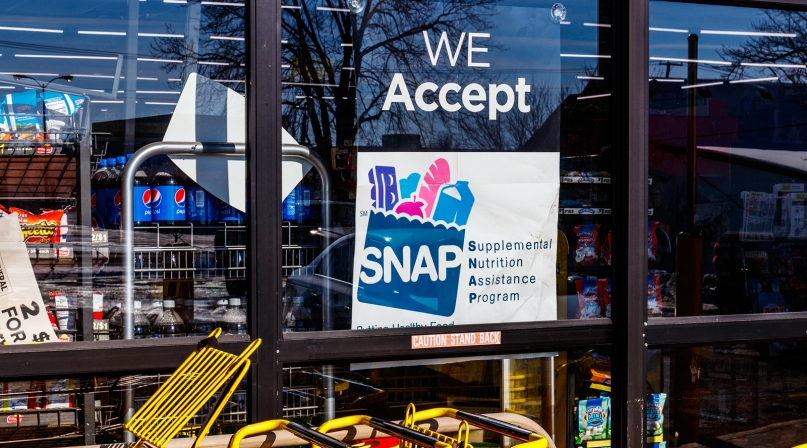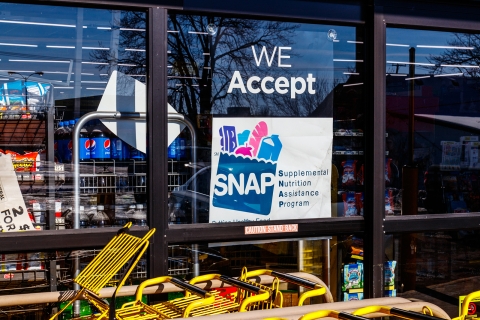NACo joins more than 2,500 groups to call for increased food assistance to respond to COVID-19
Author
Upcoming Events
Related News

Key Takeaways
On June 18, NACo joined 2,500 organizations urging Congress to provide additional assistance to communities impacted by COVID-19 through increased investments in federal nutrition programs, particularly the Supplemental Nutrition Assistance Program (SNAP). Not only does SNAP provide important health benefits to participants and stimulate local economies, counties in 10 states are responsible for administering the program and contribute local dollars to support its operation. Increasing SNAP benefits for the duration of the COVID-19 public health emergency would relieve pressure on other county social service systems, help county residents weather economic hardship and provide an important bridge for children who typically receive meals through federal school and summer nutrition programs.
County governments fund and operate a variety human services programs, often functioning as the front line of the social safety net and investing $58 billion annually in federal, state and local dollars in services that promote the health and wellbeing of vulnerable children and families. But counties across the country are experiencing economic shortfalls as efforts to contain and address COVID-19 breaks budgets, likely resulting in widespread cuts to social services. According to a report by the Government Finance Officers Association, local governments have projected an unanticipated $23 billion budget impact in the first two weeks of the COVID-19 pandemic alone. Along with targeted, flexible funding for state and local governments, increased federal resources for SNAP would help reduce demand for other county safety-net services and stimulate local economies.
Additionally, as the unemployment rate spikes as a result of the pandemic, food insecurity levels have increased by roughly 65 percent in households with children. New data from the U.S. Census Bureau shows that an estimated 14 million children in 16.5 percent of households in the United States are “sometimes or often not eating food during the pandemic.” Given the negative impact that food insecurity can have on children’s health and learning, it is critical for us to work with our federal partners to implement evidence-based policies that address and prevent food insecurity and poverty.
Given the role that SNAP can play in boosting county economies and improving food security in households with children, NACo signed a joint letter urging Congress and the White House to implement the following during the COVID-19 health emergency:
- A 15 percent boost in the SNAP maximum benefit that would help all SNAP households
- Increase in the SNAP monthly minimum benefit from $16 to $30
- A suspension of SNAP time limits and several rules changes that would cut SNAP eligibility and benefits
- A sizeable investment in complementary nutrition programs
NACo supports additional state and local aid in future relief packages and will continue to monitor developments to SNAP.
Additional Resources:
- NACo Policy Brief: Supplemental Nutrition Assistance Program (SNAP) Reauthorization and Appropriations
- Status of Human Services and Education Funding Under Supplemental COVID-19 Packages
- NACo Blog: Congress Introduces Child Poverty Reduction Act of 2020
- NACo County News: Food distributions combat hunger during pandemic

Attachments
Related News

House Agriculture Committee introduces 2026 Farm Bill
On February 13, House Agriculture Committee Chairman G.T. Thompson (R-Pa.-15) introduced the House version of the 2026 Farm Bill, the Farm, Food, and National Security Act of 2026.

USDA and HHS release new dietary guidelines
On January 7, U.S. Department of Agriculture Secretary Brooke Rollins and U.S. Department of Health and Human Services Secretary Robert F. Kennedy, Jr. unveiled the new Dietary Guidelines for Americans, 2025–2030.
